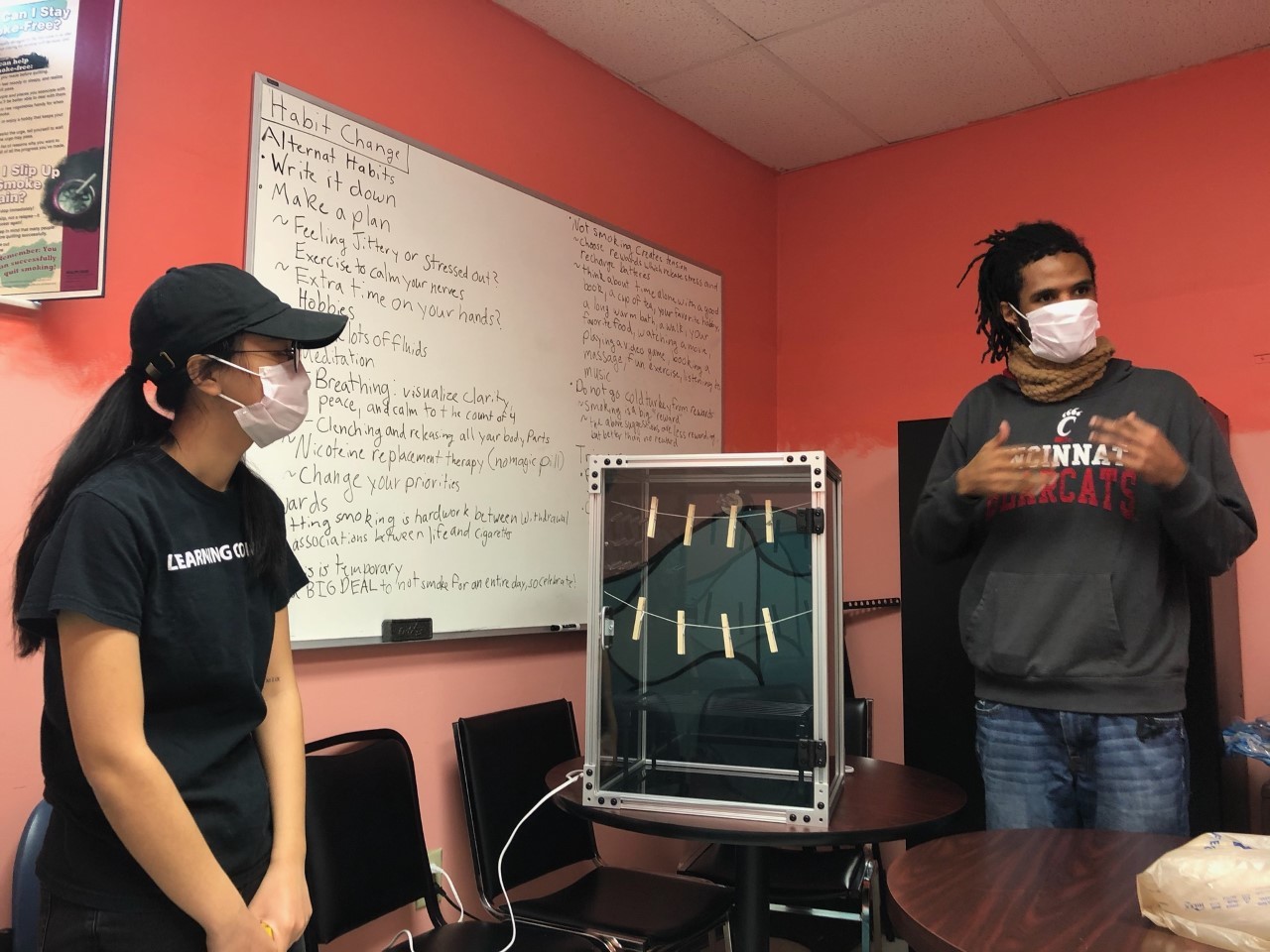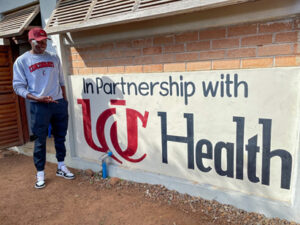UC students create UV box to aid Crossroad Health Center in midst of COVID-19
At first glance, it might be mistaken for a small wine cooler or dorm room refrigerator.
But Dis-Box is an ultraviolet box designed by a group of University of Cincinnati engineering students that may help extend use of personal protective equipment (PPE) for health care workers at Cincinnati’s Crossroad Health Center.
Designed initially to help a community in Tanzania use a low-tech but effective means of disinfecting and maintaining medical devices, the UV box will now disinfect masks and N95 filtering facepiece respirators in short supply in the Tristate in the midst of the COVID-19 pandemic. It was created by three seniors, part of the UC Department of Biomedical Engineering’s Medical Device Innovation & Entrepreneurship Program (MDIEP) — Allison-Joy Garbo, Kellen Crosby and Sepideh Shanehsaz.
The students worked on the project at the direction of Mary Beth Privitera, professor of biomedical engineering. Privitera holds a PhD in design from Loughborough University in the UK. She was contacted in late March by Dr. Christine O’Dea, associate professor of Family and Community Medicine at UC and medical director of Crossroad Health Center in Cincinnati, for assistance with ultraviolet light to decontaminate PPE. The connection was made, a promise was given and the MDIEP Bearcats delivered.
Crossroad Health Center has five locations including its headquarters in Over-the-Rhine and sees about 13,000 children and adults, largely serving a Medicaid population that struggles with access to health care. Privitera followed guidance from the University of Nebraska Medical Center and the Association for the Advancement of Medical Instrumentation (AAMI), which offered lots of technical advice, addressing questions such as whether ultraviolet light will degrade the surface of a medical mask. The University of Nebraska Medical Center recently got approval from the U.S. Food and Drug Administration to use this technique to extend the shelf life of PPE.
“Protecting health care workers, keeping them operations and functional in this time of need is of utmost importance,” said Privitera. “In addition, the situation provided for opportune learning for MDIEP students.”




